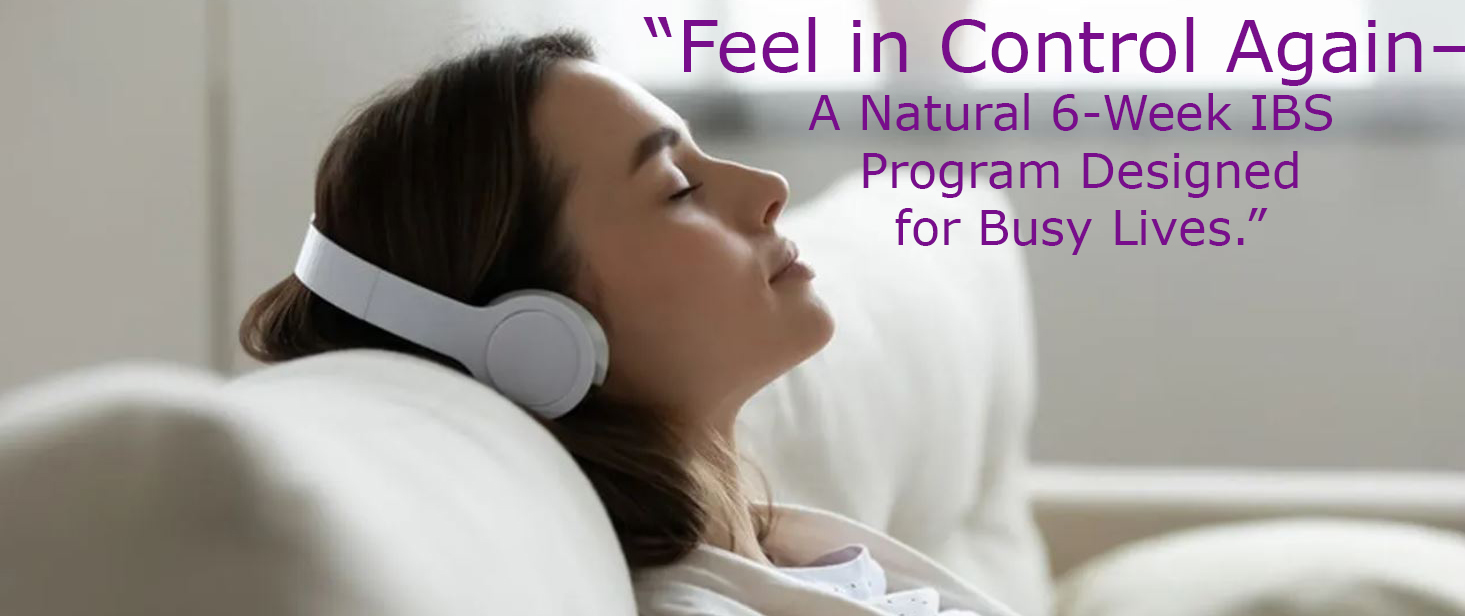"Discover the Science Behind IBS Hypnotherapy"
01-
Randomized clinical trial: the efficacy of gut-directed hypnotherapy is similar to that of the low FODMAP diet for the treatment of irritable bowel syndrome.
peters SL, et al. alimentary pharmacology & therapeutics 2016, 44: 447-59.
In 2016, researchers from Monash University in Melbourne, Australia, conducted a randomized controlled trial demonstrating that hypnotherapy is an effective treatment for irritable bowel syndrome (IBS). The study found that hypnotherapy was just as effective as the low FODMAP diet in alleviating common IBS symptoms like bloating and abdominal pain.
A randomized controlled trial found that 82% of participants maintained significant symptom improvement 6 months after gut-directed hypnotherapy—without any dietary changes. [
The findings highlight hypnotherapy as a clinically proven approach for managing IBS, offering benefits on par with dietary interventions like the low FODMAP diet.
02-
Recommended by The American College of Gastroenterology
A landmark study published in the American Journal of Gastroenterology (source) outlines the latest clinical guidelines for managing IBS. This research, developed using the Grading of Recommendations, Assessment, Development, and Evaluation (GRADE) methodology, concludes:
“We suggest that gut-directed psychotherapy be used to treat global IBS symptoms.”
While the term "psychotherapy" is used, our program incorporates evidence-based psychotherapy techniques into our Gut-Directed Hypnotherapy recordings, combining the most effective mind-gut therapies:
✅ Gut-Directed Hypnotherapy – A research-backed approach proven to help IBS symptoms
✅ Cognitive Behavioral Therapy (CBT) – Addresses stress, thought patterns, and emotional regulation
✅ Neuro-Linguistic Programming (NLP) – Supports positive mindset shifts and subconscious change
✅ Eye Movement Desensitization and Reprocessing (EMDR) – Helps reprocess emotional triggers tied to gut issues
Our program goes beyond symptom management. It enhances brain-gut communication while addressing deeper emotional experiences, including:
✔ Building Confidence & Self-Trust
✔ Releasing Guilt & Emotional Blocks
✔ Strengthening Mind-Body Connection
03-
The Medical Journal of Australia (MJA)
According to the Medical Journal of Australia, a randomized trial at the Alfred Hospital in Melbourne demonstrated that gut-directed hypnotherapy is as effective as the low FODMAP diet in alleviating IBS symptoms
04-
The British Society of Gastroenterology
According to the British Society of Gastroenterology's 2021 guidelines, gut-directed hypnotherapy is recommended for IBS patients who do not respond to pharmacological treatments within 12 months.
05-
Controlled trial of hypnotherapy in the treatment of severe refractory irritable-bowel syndrome.
Whorwell PJ; Prior A; Faragher EB. The Lancet 1984, 2: 1232-4.
A study involving 30 patients with severe, treatment-resistant irritable bowel syndrome (IBS) compared the effects of hypnotherapy and psychotherapy combined with a placebo. While the psychotherapy group experienced modest but noticeable improvements in abdominal pain, distension, and general well-being, there were no significant changes in bowel habits.
In contrast, the hypnotherapy group showed remarkable improvements across all symptoms, with the differences between the two groups being highly significant. Additionally, none of the hypnotherapy participants experienced a relapse or developed new symptoms during the three-month follow-up period.
06-
Symptomatology, quality of life and economic features of irritable bowel syndrome-the effect of hypnotherapy.
Houghton LA; Heyman DJ; Whorwell PJ. Aliment Pharmacol Ther, 1996 Feb, 10:1, 91-5.
A study involving 50 patients with severe IBS compared the effects of hypnotherapy on 25 patients to 25 treated with other methods. The hypnotherapy group showed significant improvements in all core IBS symptoms and reported fewer doctor visits, less time lost from work, and greater enhancements in quality of life compared to the control group.
Notably, patients in the hypnotherapy group who had been unable to work prior to treatment were able to return to employment, while those in the control group did not. This study highlights not only the clinical benefits of hypnotherapy for IBS but also its substantial economic advantages and positive impact on overall well-being.
07-
Long term benefits of hypnotherapy for irritable bowel syndrome.
Gonsalkorale WM, Miller V, Afzal A, Whorwell PJ. Gut. 2003 Nov;52(11):1623-9.
In this study, 204 IBS patients treated with a course of hypnotherapy completed questionnaires about symptoms, quality of life, anxiety, and depression before, immediately after, and up to six years following the treatment.
Off of the treated patients, 71% showed improvement in response to treatment initially, and of those, 81% were still fully improved when re-contacted up to five years later.
Quality of life and anxiety or depression scores were also still significantly improved at follow-up but showed some deterioration. Patients also reported fewer doctor visits rates and less medication use long-term after hypnosis treatment. These results indicate that for most patients the benefits from hypnotherapy last at least five years
08-
Intestinal Microbiome in Irritable Bowel Syndrome before and after Gut-Directed Hypnotherapy.
Peter J, et al. Int J Mol Sci. 2018 Nov 16;19(11). pii: E3619.
In a groundbreaking study, researchers investigated whether gut microbiota composition changes after hypnotherapy in IBS patients. The study included 38 IBS patients (diagnosed by Rome-III criteria) from all subtypes, who underwent 10 weekly group hypnotherapy sessions. Stool samples were collected before and after treatment to analyze microbiota composition.
Results showed significant reductions in IBS symptoms, alongside notable improvements in psychological well-being and distress. Remarkably, 84% of participants reported adequate relief from symptoms following hypnotherapy. However, no significant changes were observed in gut microbiota composition, suggesting that the benefits of hypnotherapy likely stem from its effects on the central nervous system’s regulation of the gut, rather than direct microbiota alterations.
09-
Brain and Gut Interactions in Irritable Bowel Syndrome: New Paradigms and New Understandings
Irritable bowel syndrome (IBS) is characterized by abdominal pain and altered bowel habits. Visceral hypersensitivity is believed to be a key underlying mechanism that causes pain. There is evidence that interactions within the brain and gut axis (BGA)...

Get Started—Completely Risk-Free!
7-Day FREE Trial – Experience the program before you commit
Money-Back Guarantee – If it’s not the right fit, we’ll refund you—no questions asked.
Join the 1000’s-
Who Have Benefitted from Working with
The Confidence Clinic™
"Take the Quiz—See If It’s Right for You!"


